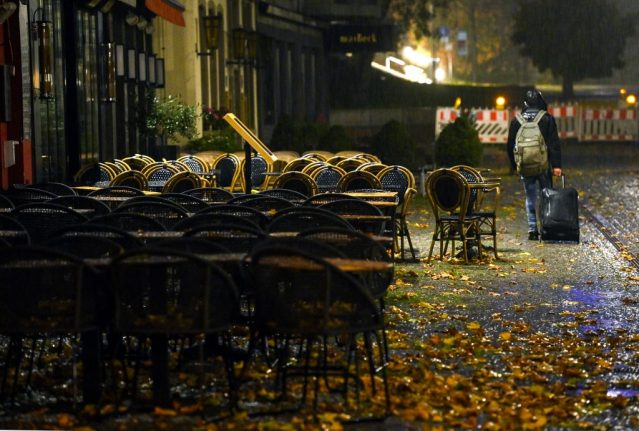Fagor, a manufacturer of washing machines, refrigerators and other appliances, had failed to reach a deal with creditors on its debt and was abandoned to its fate by its own parent group, Mondragon.
"As of today, Fagor Electrodomesticos Coop. and its subsidiary Fagor Ireland have filed for bankruptcy protection from their creditors in the Commercial Court of San Sebastian," the company said in a statement.
This makes Fagor the latest victim of a rising flood of bankruptcies in Spain.
Some 1,907 Spanish firms filed for bankruptcy in the third quarter of 2013, preliminary figures from Spain's statistics institute, the INE show. That's a year-on-year rise of 10.9 percent .
But while 27 percent of the firms facing closure were in Spain's crisis-hit banking sector, Fagor claims to be the fifth-biggest appliance manufacturer in Europe.
The company added its other subsidiaries would follow suit and also file for bankruptcy in the next few days.
Fagor operates with 10 brands, including Brandt and De Dietrich, in 130 countries worldwide and has 13 factories in Spain, France, Poland, Morocco and China.
The company announced on October 16 that it had launched initial proceedings towards bankruptcy protection while it tried to refinance its debt pile of €800 million ($1.1 billion).
Its parent group Mondragon, a Basque workers' co-operative founded in 1956 by a Catholic priest, announced October 30 it was refusing to pour in money to rescue the firm.
Mondragon said that even if it were to stump up the cash it did not believe that would guarantee Fagor's future.
Creditors refused to agree to reschedule its debts.
And the Basque government said there was nothing it could do if Mondragon did not believe refinancing Fagor would save it.
The prospect of Fagor's closure brought thousands of Fagor workers and their supporters out into the streets in protest last month.
Fagor posted sales of €1.17 billion euros in 2012, a drop of over one-third since 2007, the year before Spain's sharp economic downturn began with the collapse of a decade-long property bubble.
It lost €60 million during the first half of the year and its sales dropped 19 percent over the same time last year to €491 million.
Fagor's Polish subsidiary, Fagor Mastercook, which employs 1,400 people at its factory in Wroclaw, southwestern Poland, and Fagor's French subsidiary, FagorBrandt, which employs 1,800 people, have already filed for bankruptcy protection.
The Fagor bankruptcy filing is a major blow to Mondragon, which is often hailed as a successful alternative model to traditional corporate enterprises.
Mondragon — which is based in a small Basque town of the same name — was founded by a local priest, Jose Maria Arizmendiarrieta, as a small workers' cooperative and is now an international conglomerate with a mission of maintaining jobs.
Its various branches, present in 20 countries, include industry, distribution and finance.
Mondragon's foreign sales reached nearly €4 billion in 2011, accounting for two thirds of the corporation's industrial division, which produces consumer electronics, car parts, machinery, sports gear and more.
Despite its international presence, Mondragon's cooperative structure has kept most of its jobs and production at home, with 35,000 employees in the Spanish Basque Country, 35,000 elsewhere in Spain and about 13,500 abroad.
Most of its workers are partners in the firm, voting to elect the bosses and make sensitive decisions.



 Please whitelist us to continue reading.
Please whitelist us to continue reading.
Member comments